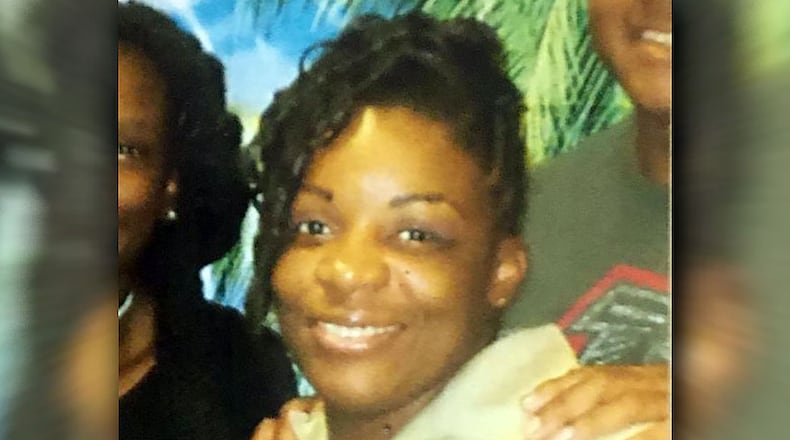Shauntrice Murry, a dying Georgia inmate who can't see loved ones because of coronavirus has halted prison visits, continues in her fight for early release.
The Georgia Board of Pardons and Paroles tentatively granted her request for a medical reprieve so she can die at home with family at her side, but state law requires the board to give the district attorney’s office that prosecuted her 90 days to raise any objections.
Murry, whose doctors terminated her chemotherapy treatment for vaginal cancer earlier this month, might not have 90 days to live, her attorneys at the Southern Center for Human Rights fear. They’ve now asked the board to commute the 45-year-old’s sentence and immediately allow her release.
“We applaud the board for swiftly granting Ms. Murry a medical reprieve,” attorney Atteeyah Hollie said, “ and hope it will do the same with her emergency commutation petition.”
Murry was sentenced to life in 2010 for involvement in a Macon house fire that killed Hezekiah Harris, 2, and Tydarious Harris, 4. Murry admits putting gas in a drink bottle before the fire but claims it was a favor for her then-boyfriend and that she had no idea why he requested it. She maintains she did not set the fire. After hearing of the boys’ deaths, Murry pleaded guilty to spare the family a trial, and herself a death sentence, her defense attorney said at the time.
Macon District Attorney David Cooke said in an emailed statement that his office isn’t ready to weigh in on Murry’s request for release.
“As is our practice, we will not make a recommendation until we’ve had a chance to speak with the family of the victims,” Cooke said Wednesday. “Ms. Murry’s two young victims didn’t get to choose the time and place of their deaths. While we are not without compassion for those who are suffering, it would be an extreme act of mercy to allow Ms. Murry to choose hers.”
Attempts by The Atlanta Journal-Constitution to contact the victims’ family have been unsuccessful.
Murry, who has lost a third of her body weight and says she’s in constant pain and unable to walk, hopes for mercy.
“Death is death,” she said in a phone interview with The Atlanta Journal-Constitution from her hospital bed in a cell at northern Georgia’s Arrendale State Prison. “But I would be more comfortable (at home), and I’d be at peace. Here, I’d be alone and scared.”
Murry’s life sentence means she would be eligible for parole at age 65, but medical records she shared with the newspaper suggest the time she has left to live might be better counted in days or weeks, not years.
Former fellow inmates describe Murry as a motherly figure, who help several of them get closer to God. She also talked them out of committing suicide, two friends said.
Murry started complaining of pain in 2018, but her diagnosis was slow to come. From July to December 2018, Murry visited with medical professionals more than a dozen times, leading to a variety of diagnoses from hemorrhoids to a urinary tract infection. In early 2019, she lost 45 pounds. That spring she finally was diagnosed with malignant neoplasm of the vagina — vaginal cancer.
By the end of summer 2019, the cancer had spread to Murry’s bones. She was now down to 101 pounds, and needed a wheelchair or fellow inmates helping steady her on her way to the bathroom.
Earlier this month, a doctor broke the news to Murry that her chemo had failed. Murry needed to call her family.
“Let them know,” Murry recalled the doctor saying. “This is it.”
About the Author
The Latest
Featured



